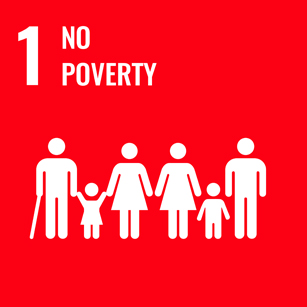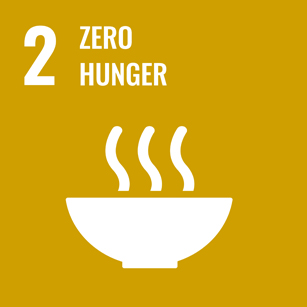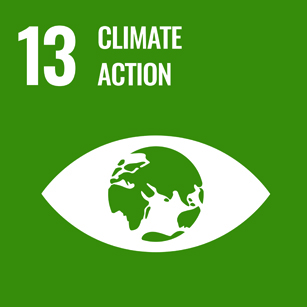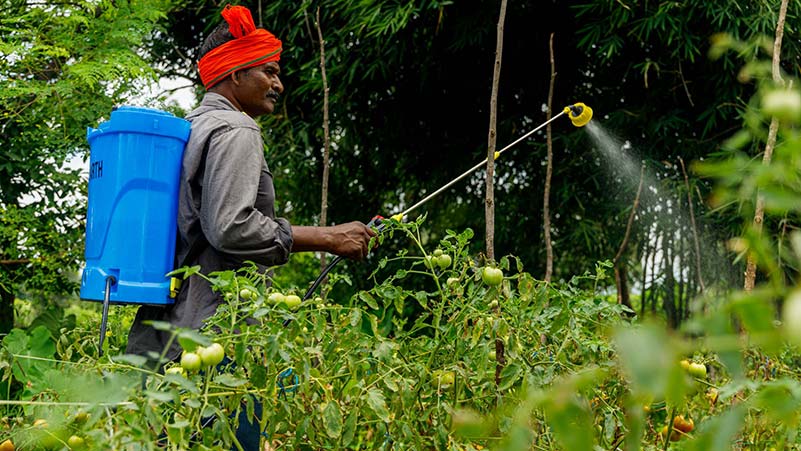Climate-resilient agriculture for rural livelihoods
- Proposed areas of implementation
- Potential areas of implementation
Project Partner



India, as one of the world’s major agricultural land users, faces numerous challenges in the farming sector. The majority of farmers in the country are small and marginal landholders who own tiny parcels of land, making agriculture unviable beyond subsistence. Climate change further exacerbates the situation, particularly in rain-fed dry regions, resulting in food and water insecurity, as well as poverty. Moreover, farmers lack awareness on enhanced farming methods, leading to the misuse of land resources, soil degradation, and reduced productivity. Excessive use of fertilisers by farmers to boost crop production not only degrades the land and crops in the long run but also poses risks to human health, emphasising the need for education on organic farming and cost-cutting farming methods.
The proposed project by Watershed Organisation Trust (WOTR) in 20 villages in Railmagra block of Rajsamand district, Rajasthan, aims to promote climate-resilient agriculture practices and organic farming through the implementation of multilayer farming techniques. Through the Farmer Field School (FFS) demonstration approach, which fosters cyclical learning, peer-to-peer knowledge sharing, and the development of communicative skills within farmer groups, WOTR will actively engage in capacity building and promote the system of crop intensification. This approach will facilitate knowledge exchange among farmers, encourage continuous learning, and reduce reliance on chemical inputs. The project’s key objectives include optimising land use, enhancing crop yields, and meeting household nutritional requirements through the adoption of multilayer farming. Additionally, capacity building exercises will empower farmers to embrace sustainable agricultural practices, including the utilisation of locally available seeds, integrated nutrient and pest management, and organic farming methods. By pursuing these initiatives, the project aims to make farming economically viable, remunerative, climate-smart, and sustainable, thereby ensuring the long-term economic growth of the agriculture sector in the region.
WOTR can also implement this project in other blocks of Rajsamand and other districts of Rajasthan, as well as in Karnataka and Odisha where it also has presence.
Context
India, with approximately 328 million hectares of land, out of which 139.4 million hectares is reported as net sown area, stands as one of the largest land users for agriculture worldwide. The sector plays a critical role in the country’s long-term and inclusive economic growth, contributing around 20% to the Gross Domestic Product (GDP) and employing approximately 50% of the workforce. However, the majority of farmers in India are small and marginal farmers (SMFs), whose land holdings constitute 86.08% of the total land holdings, with an average landholding size of just 1.48 acres. Such limited land parcels make agriculture unviable beyond subsistence and contribute to the fragility of SMF incomes.
The challenges faced by SMFs are further amplified by climate change risks, lack of timely crop advisory services, limited access to inputs, credit, post-harvest services, market linkages, and price realisation. These threats are particularly severe in rain-fed dryland regions, characterised by highly variable and uncertain yields. Climate change exacerbates these challenges, with increasing rainfall and temperature variability, occurrence of extreme events, and escalating land degradation (desertification) in these drylands. As a result, poverty, food insecurity, and water scarcity are likely to worsen in these regions. Moreover, agriculture is increasingly seen as a last-resort option, deterring rural youth from entering the sector. Therefore, there is an urgent need to make farming economically viable, remunerative, climate-smart, and sustainable.
The proposed project location is Rajsamand district, Rajasthan, which is bounded by the Aravalli hill range in the northwest. According to the Indian Council for Agricultural Research (ICAR) classification, the district falls within the hot semi-arid eco-region. On average, Rajsamand district receives about 513 mm of rainfall per year, with the majority (476 mm) occurring during the South West Monsoon (June-September). However, there has been significant variation in rainfall levels, ranging from -5% to +100% from normal levels in the past decade. The number of rainy days has also fluctuated between 29 and 48 days. Temperatures also showed significant variation –with an increase in both the number of hot days and cold days. Rajsamand is among the top 20 drought-exposed districts, according to a report by Council on Energy, Environment, and Water (CEEW).
Approximately 30% of the total geographical area of Rajsamand district is cultivable, with a cropping intensity of about 147%. However, most of the cultivated area is rain-fed. Maize is the major crop cultivated, followed by wheat and oilseeds. Climate change further intensifies the pressure on scarce water and land resources in the region, adversely affecting food security and the well-being of farming communities. Based on WOTR’s observations, farmers in Rajsamand have been experiencing crop losses in recent years, primarily due to extended or unseasonal rainfall. The Indian Meteorological Department data also indicates an increase in rainfall, particularly during the wheat and mustard harvest period. Excessive rainfall during the rainy season and frequent hailstorm events during crop maturity have led to significant losses for farmers. The vulnerability index of agriculture to climate change in Rajsamand district is remarkably high, and it is projected to worsen in the next 30 years, according to a report by the Central Research Institute for Dryland Agriculture. Effective planning, land management, and climate-resilient activities can help mitigate the impact of climate variability. Promoting climate-resilient agriculture practices among farmers not only enhances soil and human health but also improves profitability by reducing the use of expensive chemicals and input costs in agriculture.






Problem statement
Rajsamand district located in south-central Rajasthan, represents approximately 1.68% of the state’s population. Based on extensive field work conducted in the Railmagra block of the district, WOTR has identified the following challenges:
Climate change and related risks – Changing weather patterns and the increasing occurrence of extreme meteorological events, such as droughts, floods, long dry spells, intense rainfall, and hailstorms, significantly impact crop production and productivity. Additionally, the emergence of new pests and diseases adds further challenges for farmers, who often struggle to cope with these risks, mitigate losses, and adapt to changing climatic conditions.
Awareness of improved agricultural practices – There is a significant lack of awareness regarding advanced agricultural techniques that have the potential to enhance productivity. Improper use of available land resources has led to nutrient depletion, soil erosion, and reduced crop production. Faulty agricultural practices, such as incorrect ploughing and a lack of crop rotation, contribute to these issues. In addition, inadequate storage practices, such as storing grains in polythene bags, result in spoilage and loss.
Excessive use of chemicals – Farmers in the project area heavily rely on chemicals, including liquid and solid fertilizers like urea, to boost their production and income. To combat diseases and pests, they often apply highly concentrated chemicals that can be harmful to both crops and humans. Lack of knowledge about organic and cost-effective farming techniques further contributes to the excessive use of chemicals. Educating farmers on the risks of overusing chemicals and introducing alternative, safer farming methods is crucial for improving crop yields and promoting environmental and human well-being.
Limited awareness of government schemes and programs for agriculture – Enhancing awareness about government schemes is vital to ensure that farmers do not miss out on benefits. Increasing awareness of such schemes and programs is essential for farmers to take advantage of subsidies and support, improving their yields. Government schemes like Paramparagat Krishi Vikas Yojana (PKVY), which provides subsidies on input materials like seeds, fertilizers, and equipment, and Pradhan Mantri Krishi Sinchayee Yojana (PMKSY), which offers subsidized micro-irrigation systems, can greatly benefit farmers by enhancing agricultural productivity and irrigation coverage.
Goals and objectives
The goal of the project is to promote climate-resilient agriculture (CRA), incorporating both mitigation and adaptation strategies, to enhance the resilience and livelihoods of small and marginal farmers (SMFs) and improve household nutrition.
The specific objectives of the project include:
CRA is an approach that integrates mitigation and adaptation practices to enhance the capacity of crop and livestock production systems in responding to climate-related variabilities and disturbances (such as drought, flooding, heat and cold waves, erratic rainfall, and pest population explosions). CRA involves the judicious and improved management of natural resources through adoption of best practices such as water and nutrient management, agro-advisories, conservation agricultural practices to build soil organic carbon, and mitigation technologies such as cultivation of tolerate breeds to overcome climate stress. The project aims to promote the adoption of CRA through the Farmer Field School (FFS) demonstration approach. FFS encourages cyclical learning, peer-to-peer knowledge sharing, and the development of communication skills within farmer groups. Demonstrations will be conducted on farm plots of approximately 0.2 hectares, primarily focusing on SMFs cultivating in rain-fed drylands. The emphasis will be on reducing chemical usage on farmlands. Key practices such as the system of crop intensification (SCI), biofertilizers, and integrated pest management will be prioritised. SCI involves soil preparation and management, crop geometry, systematic application of organic inputs, and the use of micro-nutrient foliar spray and basal application. The aim is to promote environmentally friendly farming that maintains soil health and productivity through the utilisation of organic waste and beneficial microbes.
The project will promote multilayer farming, which is an integrated farming system where different crops are cultivated in the same field at different soil layers based on their root zones. This approach optimises land use, allowing farmers to grow multiple crops in a smaller space, which is particularly beneficial for smallholder farming. It enhances crop yields, income, and meets household nutritional requirements. Multilayer farming helps prevent soil depletion by alternating different crops annually, reduces the need for fertilizers and water, prevents pest outbreaks, and minimises water evaporation. Farmers will receive training on multilayer farming, including theory, practical demonstrations, and implementation guidance. Necessary resources such as seedlings and seeds of various crops, rain irrigation systems (e.g., drip irrigation or sprinkler irrigation), rain pipes, and pest and disease management tools will be provided. While the primary objective is self-consumption, any surplus production can be sold in the market to generate income.
The project will undertake capacity-building exercises to enhance farmers’ capacity to adopt sustainable agricultural practices. These efforts will focus on various elements, including the use of local cultivars and recommended new varieties, seed treatment with biofertilizers and fungicides, integrated nutrient management (INM) based on soil testing reports, integrated pest management (IPM) using organic and biological formulations, integrated weed management (IWM), and organic farming practices. In addition to demonstrations, FFSs will play a crucial role in providing on-site training, guidance, and support from agricultural experts. Exposure visits to other farms and agricultural institutions will be organised to inspire and motivate farmers to adopt an integrated farming approach.
About the organisation
The Watershed Organisation Trust (WOTR) – established in 1993, is a non-profit that engages at the intersection of practice, knowledge and policy across scales and in collaboration with various stakeholders across sectors. Its goal is to ensure water, food, livelihoods and income security together with a growing quality of life to vulnerable and disadvantaged communities in rural areas on a sustainable and equitable basis.
As on date, WOTR has worked/ supported partners in over 4100 villages across 10 Indian states – Maharashtra, Telangana, Andhra Pradesh, Madhya Pradesh, Rajasthan, Jharkhand, Bihar, Chhattisgarh, Karnataka and Odisha. It has impacted more than 4.43 million beneficiaries, trained over 610,000 persons from across India and abroad and collaborated with 230 NGOs/ Project Implementing Agencies (PIAs).
WOTR’s areas of work are: watershed development and eco-systems management, integrated water resources management, climate resilient agriculture, sustainable rural livelihoods, women’s empowerment, nutrition, health, sanitation and hygiene. Cross-cutting thematics across these areas include adaptation and resilience to climate change, institutional development, governance and policy engagement.






